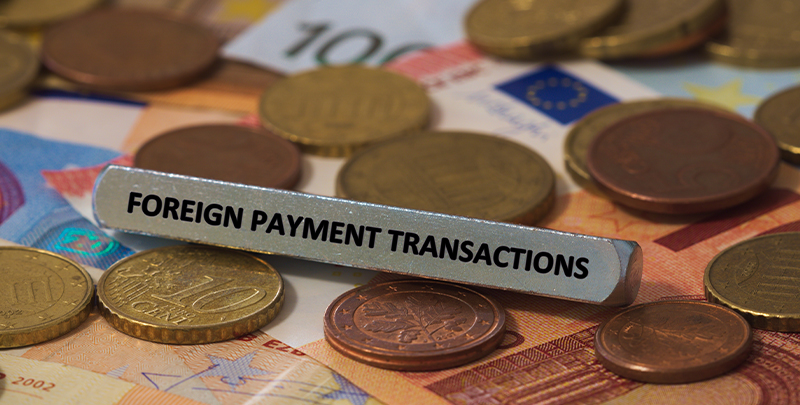 Jul 16, 2024
Jul 16, 2024
Understanding foreign transaction fee on Credit Cards
Apply for Credit Card!
When you use your Credit Card internationally, you might encounter something known as a foreign transaction fee. Understanding how this fee works and how to manage it can save you money and ensure a smoother travel experience.
What is a foreign transaction fee?
A foreign transaction fee is an additional charge that your Credit Card issuer imposes when you make a purchase in a foreign currency or through a foreign bank. This fee typically covers the cost of converting the transaction from foreign currency to Indian Rupees, as well as any additional processing fees.
How much is a foreign transaction fee?
The amount of the foreign transaction fee on Credit Cards varies depending on the Credit Card issuer. Typically, this fee ranges from 1% to 3% of the transaction amount.
How to calculate foreign transaction fees
Foreign transaction fee = Purchase amount in ₹ × foreign transaction fee percentage
Sample calculation:
- Foreign purchase amount: USD 100
- Exchange rate: 1 USD = ₹84
- Converted amount in ₹: $100 * ₹84 = ₹8,400
- Foreign transaction fee percentage: 3%
Foreign transaction fee calculation: ₹8,400×0.03 = ₹252
Transactions subject to foreign transaction fees
- Buying from international e-commerce sites incurs fees due to currency conversion and processing.
- Using your Credit Card at foreign ATMs results in a foreign transaction fee, plus any ATM fees.
- Services billed by companies outside India, such as streaming or software subscriptions, incur fees.
- Booking and paying with international companies can attract foreign transaction fees.
- Purchasing tickets directly from non-Indian airlines typically incurs fees.
- Payments through apps or digital wallets in foreign currencies are subject to these fees.
How to avoid foreign transaction fees
- Opt for Credit Cards that do not charge foreign transaction fees, as this will allow you to make international purchases without incurring additional costs.
- Always choose to pay in the local currency when given the option. This can help you avoid dynamic currency conversion fees, which are often higher than standard foreign transaction fees.
- Consider using prepaid travel cards, which allow you to load multiple currencies and spend abroad without transaction fees.
Conclusion
Consider applying for an Axis Bank Credit Card when you travel abroad and enjoy offers and benefits such as accelerated reward points, cashback, discounts and so on.
Wrapping up
Understanding the foreign transaction fee on Credit Cards is crucial for managing your finances while travelling abroad.
Also Read: How to get a Credit Card without bank account? - 5 Easy steps
FAQs
How do I find out how much I have been charged on a foreign transaction?
You can check your Credit Card statement. The statement will typically list the original transaction amount, the conversion rate and the foreign transaction fee applied.
Is there a credit limit for international expenses?
Yes, your Credit Card’s credit limit applies to both domestic and international expenses.
Will finance charges be applicable if I do not pay the foreign transaction rate?
Yes, if you do not pay the full balance, including the Credit Card international fee, finance charges or interest will be applied to the remaining amount.
Will monetary instruments charge a mark-up fee on international transactions?
Yes, most Credit Cards and monetary instruments charge a mark-up fee on international transactions.
Disclaimer: This article is for information purpose only. The views expressed in this article are personal and do not necessarily constitute the views of Axis Bank Ltd. and its employees. Axis Bank Ltd. and/or the author shall not be responsible for any direct / indirect loss or liability incurred by the reader for taking any financial decisions based on the contents and information. Please consult your financial advisor before making any financial decision.












